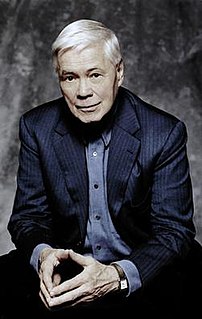A Quote by Dietrich Fischer-Dieskau
Anyone who draws attention to himself as an individual, is viewed with suspicion. We acquired this tendency, of course, from America, and we must resist it: levelling, and imitation of what others are already doing.
Related Quotes
The producer beating a new path for himself through the wilderness is going to do the thing 'differently,' of course. But after a while, he looks about him. The territory is unfamiliar, the forest ahead forbidding. Just how 'different' dare he be? He looks at his resources, and then at the established successes of the past. He suddenly realizes he must play safe, be sure. The unknown is a gamble; the known isn't-at least comparatively. The safest plan, obviously, is to follow the trailblazers. So he produces an imitation of one of the current successes. Usually it is a mediocre imitation.
Man is indeed lost, but that does not mean that he is nothing. We must resist humanism, but to make a man a zero is not the right way to resist it ... [The] Christian position is that man is made in the image of God and even though he is now a sinner, he can do things that are tremendous - he can influence history for this life and the life to come, for himself and for others...From the biblical viewpoint, man is lost, but great.
Children will, in my dream, be taught that laziness and narcissism are at the very root of human evil, and why this is so. . . . They will come to know that the natural tendency of the individual in a group is to forfeit his or her ethical judgment to the leader, and that this tendency should be resisted. And they will finally see it as each individual's responsibility to continually examine himself or herself for laziness and narcissism and then to purify themselves accordingly.
A man who lies to himself, and believes his own lies becomes unable to recognize truth, either in himself or in anyone else, and he ends up losing respect for himself and for others. When he has no respect for anyone, he can no longer love, and, in order to divert himself, having no love in him, he yields to his impulses, indulges in the lowest forms of pleasure, and behaves in the end like an animal. And it all comes from lying - lying to others and to yourself.
Man—every man—is an end in himself, not a means to the ends of others; he must live for his own sake, neither sacrificing himself to others nor sacrificing others to himself; he must work for his rational self-interest, with the achievement of his own happiness as the highest moral purpose of his life.
The people, the ultimate governors, must have absolute freedom of, and therefore privacy of, their individual opinions and beliefs regardless of how suspect or strange they may appear to others. Ancillary to that principle is the conclusion that an individual must also have absolute privacy over whatever information he may generate in the course of testing his opinions and beliefs.




































